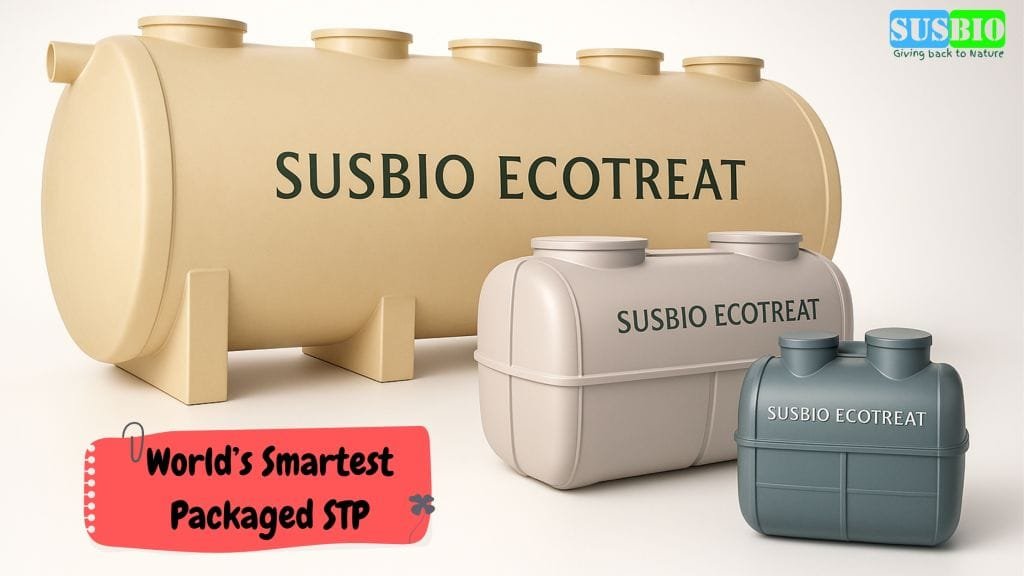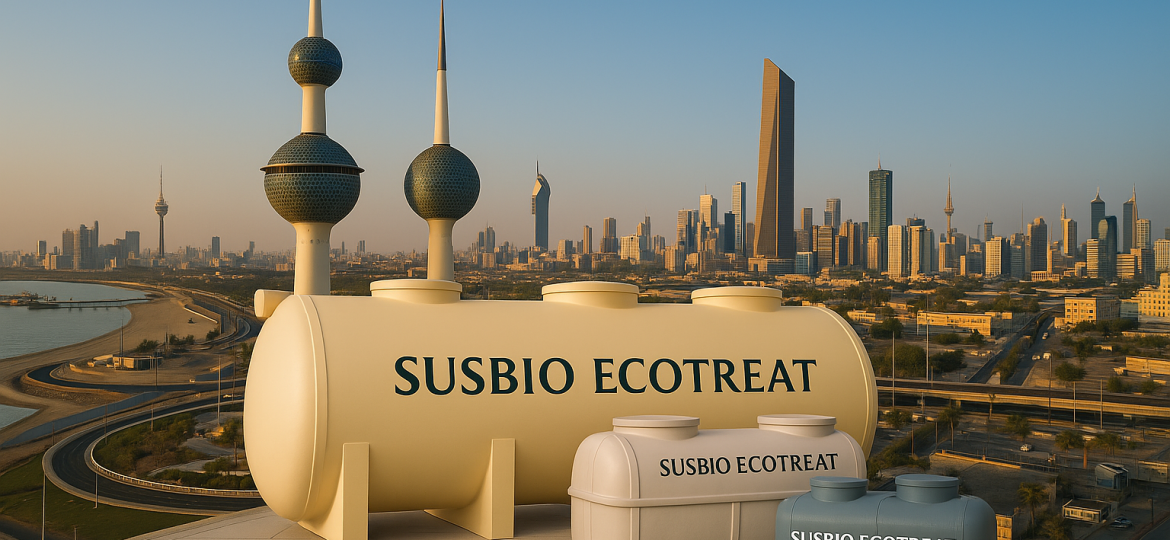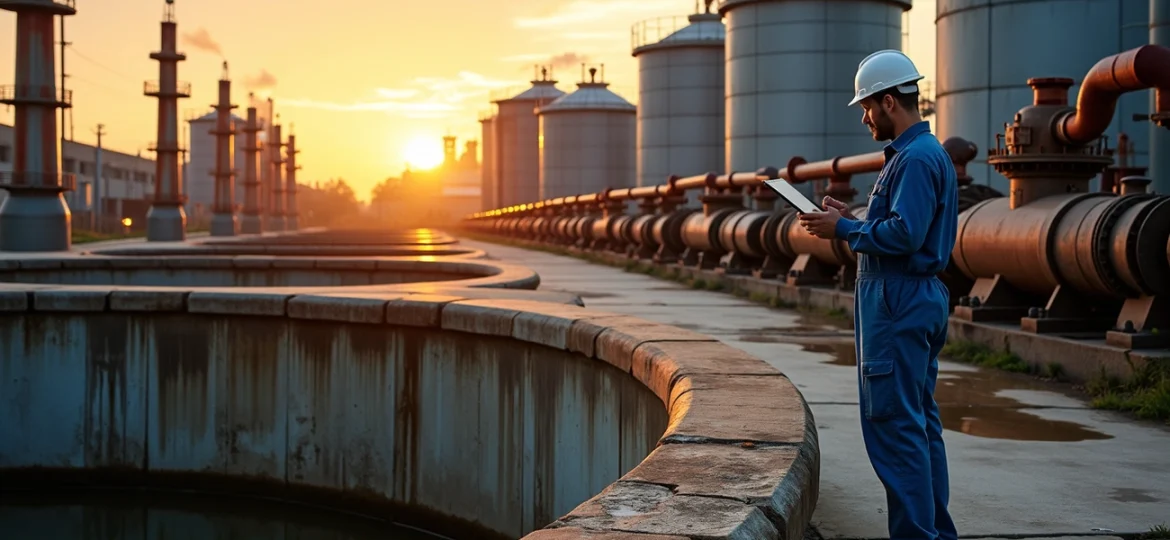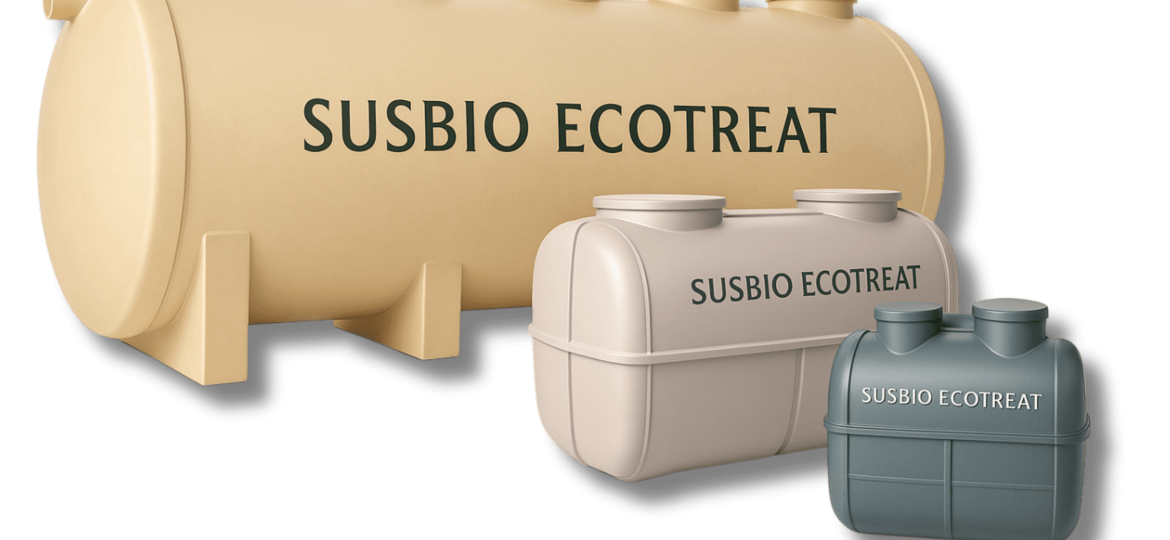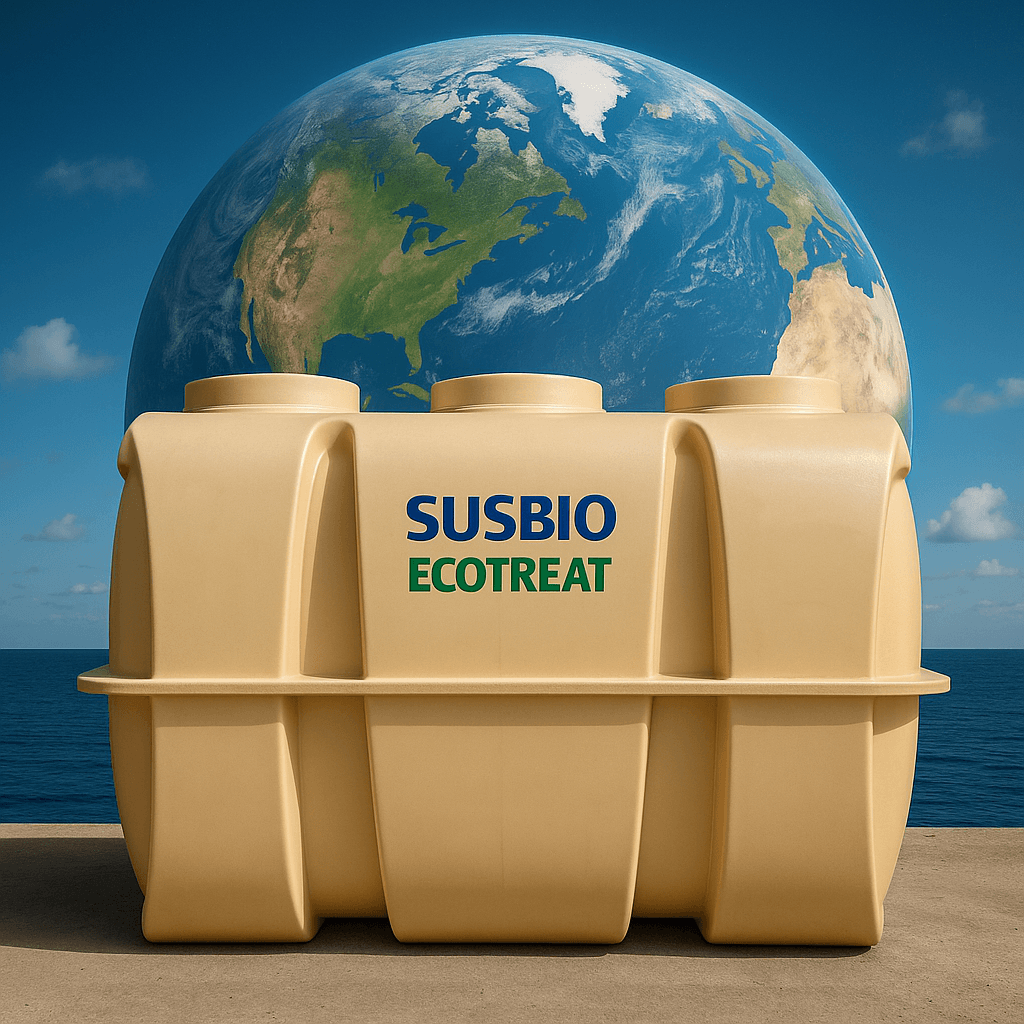Sewage treatment plant manufacturers in Udaipur help address the city’s growing water management challenges. Udaipur, famous for its beautiful lakes, faces major threats from untreated sewage and industrial wastewater.
Proper sewage treatment protects both the environment and public health. STPs in Udaipur show excellent results. Hindustan Zinc’s STP proves how public-private partnerships can effectively treat the city’s domestic sewage. These treatment facilities reduce our dependence on fresh water resources and create a better water management system for the region.
SUSBIO leads the pack among sewage treatment plant manufacturers in India’s Udaipur market. Their SUSBIO ECOTREAT is the city’s best packaged STP. These systems employ advanced technologies like Mixed Bed Bio Reactor (MBBR) and offer treatment options from 20 KLD to 100 KLD capacity. We provide detailed wastewater management solutions to protect our environment and community health.
Udaipur’s Water Challenges and the Need for STPs
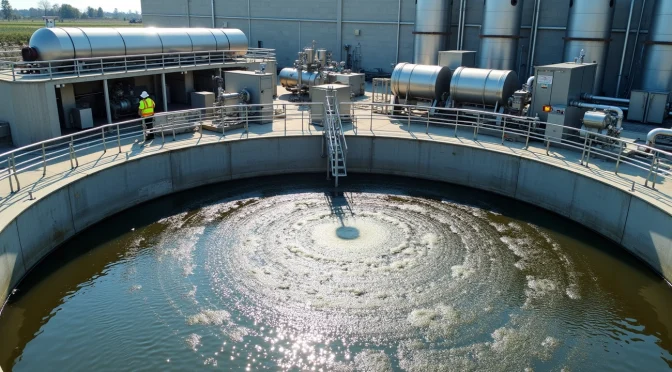
Udaipur, the city of lakes, faces major wastewater management challenges. Its fragile ecosystem is under strain from rapid development. The city needs specialized sewage treatment plant manufacturers to step in right away to protect its once-pristine water bodies.
Urbanization and Water Pollution in Udaipur
The city’s urban footprint has grown fast, putting massive pressure on water resources. Every day, Udaipur produces about 70 million liters of wastewater. The city lacks proper treatment facilities to handle this volume. Raw sewage often flows straight into the iconic lakes, which throws the ecological balance off.
Tourism brings money to the city but adds to the water problems. Hotels and recreational spots near lakes create large amounts of wastewater that need special treatment. Tourist numbers go up and down with seasons, which makes managing wastewater even harder.
Industries around Udaipur make things worse. Manufacturing units without proper effluent treatment plants (ETPs) release contaminated water. This water contains heavy metals and chemicals that eventually reach the city’s water bodies through different routes.
Impact on Lakes and Public Health
Famous lakes like Fateh Sagar, Pichola, and Udai Sagar show clear signs of sewage contamination. Water quality tests show dangerous levels of biological oxygen demand (BOD) and chemical oxygen demand (COD). These numbers point to serious organic pollution that threatens both water ecosystems and tourism appeal.
Public health risks are just as worrying. People living near affected water bodies get waterborne diseases more often now. Health risks spike during monsoons when untreated sewage floods residential areas. Local medical facilities report more cases of stomach-related illnesses that link back to contaminated water.
Bad groundwater affects drinking water for many communities. Udaipur’s connected water systems mean pollution spreads widely. A problem in one area soon becomes a health challenge across the city.
Why Sewage Treatment is Critical for the City
Udaipur must build reliable sewage treatment infrastructure to stay the “Venice of the East.” Good STPs can cut lake pollution by 90%. This helps protect both the environment and tourism. Treated wastewater can also help during water shortages by being used for non-drinking purposes.
Rules make proper sewage management necessary. The Rajasthan State Pollution Control Board has strict standards for water discharge. These rules need advanced treatment technology. Breaking these rules leads to big fines for both city officials and private businesses.
SUSBIO leads the pack of sewage treatment plant manufacturers in Udaipur. They create custom solutions for the city’s specific challenges. Their systems regularly beat regulatory requirements by mixing technical excellence with local knowledge. Their top product, SUSBIO ECOTREAT, stands out as Udaipur’s best packaged STP. It fits well in tight urban spaces.
The money makes sense too. Setting up these systems costs a lot at first. But the long-term gains are worth it – lower healthcare costs, more tourism money, and a protected ecosystem create good returns. Public and private groups now see that working with a good sewage treatment plant manufacturer in India brings value beyond just following rules.
Understanding STP and ETP Technologies in Udaipur
Udaipur’s wastewater management depends on two different technologies: Sewage Treatment Plants (STPs) and Effluent Treatment Plants (ETPs). These systems have different roles but work together to protect Udaipur’s water resources from contamination.
Domestic Wastewater Treatment via STPs
STPs handle domestic sewage from homes, commercial buildings, and municipal sources. Udaipur’s STPs can process about 70 million liters of sewage each day. The treatment turns harmful wastewater into safe effluent through several stages.
Modern STPs follow these stages:
Physical Treatment: Screens and settles large solids and debris
Biological Treatment: Uses microbes to break down contaminants
Chemical Treatment: Adds specific chemicals to neutralize remaining impurities
Final Filtration: Polishes water to meet quality standards before release
Hindustan Zinc built Udaipur’s first Sewage Treatment Plant in 2014. This public-private partnership started with 20 million liters per day (MLD) capacity. The capacity now reaches 55 MLD and treats most of Udaipur’s domestic sewage. The plant uses Sequential Batch Reactor (SBR) technology, which saves energy and treats water without chemicals.
Industrial Wastewater Management with ETPs
ETPs are different from STPs because they treat industrial wastewater that contains chemicals and heavy metals. Industrial waste needs specialized treatment due to its complex and often dangerous nature.
Udaipur’s textile, paper, and oil industries need ETPs because their wastewater contains toxic substances. These plants use advanced chemical and physical processes to clean industrial pollutants before they reach water bodies.
Industrial ETPs work differently from domestic STPs. Each industry creates unique chemical waste, so ETPs must be custom-designed to handle specific pollutants. This makes industrial wastewater treatment more complex but essential to meet environmental standards.
Compliance with CPCB and RSPCB Norms
The Rajasthan State Pollution Control Board (RSPCB) watches over wastewater treatment across the state under the Water Act of 1974. RSPCB takes CPCB guidelines and adapts them to Rajasthan’s environmental needs.
STPs must meet specific standards: pH (6.5–8.5), Biochemical Oxygen Demand (≤10 mg/L), Chemical Oxygen Demand (≤50 mg/L), and Total Suspended Solids (≤10 mg/L). Breaking these rules can lead to big fines, permit suspension, or legal action.
New rules require STPs in healthcare facilities with over 100 beds, even if they connect to sewerage networks. These facilities must also add disinfection units before they discharge or reuse treated water.
SUSBIO leads the market as Udaipur’s top sewage treatment plant manufacturer. Their product, SUSBIO ECOTREAT, stands out as Udaipur’s best packaged STP. It uses advanced MBBR technology, similar to Hindustan Zinc’s systems. This technology cleans water effectively while taking up less space—a big plus in Udaipur’s urban setting.
Proper STP and ETP use has changed Udaipur’s environment. Hindustan Zinc’s STP reduced fresh water use by 60%, dropping from 16,500 to 7,000 cubic meters daily. This shows how working with sewage treatment plant manufacturers in India benefits the environment.
SUSBIO: Leading Sewage Treatment Plant Manufacturer in Udaipur
SUSBIO leads the pack of sewage treatment plant manufacturers in Udaipur thanks to its fresh take on wastewater management. Two BITS Pilani postgraduates, Akshat Tyagi and Raghavendraprasad Suryavanshi, started the company in 2013. The company has grown faster since then, becoming a trailblazing force in eco-friendly waste management solutions. Their financial outlook is strong with projected revenue above ten crores for 2023-24, current revenue of 3+ crores, and operating income at 45 lakhs.
Custom STP Solutions for Residential and Industrial Use
SUSBIO creates custom sewage treatment solutions for clients of all sizes. Their main technologies are the Sequential Batch Reactor (SBR) and prefabricated Johkasou STP systems. These systems can recycle up to 98% of treated water. Each system is built to match specific client needs, whether they’re homes, businesses, or industrial facilities.
Their product line has Sewage Treatment Plants, SUSBIO-SBR prefab Johkasou based STP, Biodigester, Biotoilet, and Rapid composters. Industries love these solutions because they’re both eco-friendly and economical. SUSBIO blends technical excellence with local knowledge to build systems that beat regulatory standards consistently.
On-site Installation and Maintenance Services
A team of skilled professionals at SUSBIO handles installation and maintenance, available 24×7 throughout the year. Regular maintenance is vital since it helps the plant run better and last longer. Their experts take care of everything from setup to routine checks, which keeps operations running smoothly.
The company’s fully automatic systems use biological treatment to clean wastewater. These automated controls make the systems easier to run, perfect for different locations in Udaipur.
Client Portfolio and Local Impact
SUSBIO’s track record shows 186 completed sewage treatment plant projects across India. Their impressive client list features:
Government sector: Indian Railways, Indian Navy, and government universities
Hospitality: Radisson Blue and numerous hotels
Education: BITS Pilani and other institutions
Industry: Pernod Ricard and manufacturing units
The company has cleaned over 1,642 lakh liters of wastewater, and 95-98% of this water can be reused. This is a big deal as it means they’re saving 4,300,000 liters of water daily through their projects. These achievements make SUSBIO Udaipur’s top sewage treatment plant manufacturer, with their SUSBIO ECOTREAT becoming the region’s leading packaged STP solution.
SUSBIO Ecotreat: Best Packaged STP in Udaipur
SUSBIO has established itself as a trailblazer among India’s many sewage treatment plant manufacturers with its groundbreaking SUSBIO ECOTREAT system. This packaged STP has become the best wastewater treatment solution in Udaipur because of its innovative design and outstanding performance.
Plug-and-Play Design for Quick Deployment
The SUSBIO ECOTREAT sets itself apart from standard treatment systems with its clever prefabricated design. The packaged sewage treatment plant comes fully assembled and ready to use, built with reliable fiber-reinforced plastic (FRP). This “plug-and-play” approach removes the need for extensive on-site construction and cuts down installation time and labor costs.
The system first runs a complete analysis of incoming wastewater before starting its treatment cycle. The process then runs on its own without needing dedicated staff on site. This self-running operation makes it perfect for residential complexes, commercial buildings, and small industrial facilities across Udaipur.
MBBR and MBR Technology Integration
The SUSBIO ECOTREAT’s success comes from its advanced dual-treatment method that blends anaerobic and aerobic processes. The system uses Moving Bed Biofilm Reactor (MBBR) technology, where plastic media suspended in wastewater creates the perfect environment for helpful bacteria.
The MBBR part has several layers of special plastic media that lets wastewater and biofilm interact longer to break down pollutants. Many systems also use Membrane Bioreactor (MBR) technology that combines biological treatment with membrane filtration to produce extremely clean water. This combined approach works better than systems that use just one technology.
Energy Efficiency and Space Optimization
The SUSBIO ECOTREAT uses 90% less electricity than traditional treatment plants. This huge drop in power usage shows the company’s dedication to environmentally responsible wastewater management. The system also runs quietly, which works great for places sensitive to noise.
The compact, modular design fits perfectly in spaces with size restrictions. While regular sewage treatment plants need lots of space, the SUSBIO ECOTREAT works just as well in much smaller areas without losing any treatment capacity. This space-saving feature proves valuable in Udaipur’s crowded urban and commercial areas.
The system works well for many different uses, from treating household wastewater to commercial and industrial applications. You can customize its setup to meet specific capacity needs while keeping performance consistent across all installations.

Sustainability and Long-Term Impact of STPs in Udaipur
Green water management practices through STPs have created remarkable benefits for Udaipur. These systems do more than just treat water – they reshape the city’s water ecology for future generations.
Reduction in Freshwater Dependency
The new sewage treatment infrastructure has significantly cut down reliance on scarce freshwater resources. Hindustan Zinc, which runs Udaipur’s first STP under a public-private partnership, has reduced its freshwater use by 28% in the last decade. The company has recycled 71 billion liters of treated sewage water – enough to meet Udaipur’s water needs for over 500 days. Their efforts have resulted in 3.32 times water positivity by treating and reusing all process water in operations.
Reuse of Treated Water for Landscaping and Industry
Treated wastewater serves multiple sectors effectively. The existing plants distribute 9.5 MLD to the Industrial Zinc Complex and 7.3 MLD for horticultural purposes, while 1.1 MLD flows back to the Ahar River. Only 30% of Udaipur’s wastewater received treatment until recently. SUSBIO, the leading sewage treatment plant manufacturer in Udaipur, now provides superior packaged STPs that enable quick water recycling. This makes it the best choice for sustainable water management solutions.
Contribution to SDG 6: Clean Water and Sanitation
Udaipur’s STP infrastructure advances Sustainable Development Goal 6, which targets clean water and sanitation. SUSBIO Ecotreat, the best packaged STP in Udaipur, helps achieve multiple SDG targets. These include safely managed drinking water services and reduced untreated wastewater. The systems directly impact Target 6.3.1 (proportion of safely treated wastewater) and Target 6.4.2 (level of water stress).
Conclusion
Udaipur’s experience with green water management shows how proper sewage treatment infrastructure makes a huge difference. The city’s iconic lakes were once at risk from untreated wastewater. Advanced sewage treatment solutions have improved these waters by a lot. The new STPs have preserved Udaipur’s natural beauty and protected the health of locals and tourists.
New technology has reshaped how Udaipur handles its wastewater. The city uses specialized STP and ETP systems to process millions of liters of domestic and industrial wastewater each day. These systems work together to meet strict regulatory standards and protect Udaipur’s delicate ecosystem.
SUSBIO leads the pack as Udaipur’s best sewage treatment plant manufacturer with solutions that tackle the city’s unique challenges. Their SUSBIO ECOTREAT system stands out among local packaged STP solutions. The system brings together efficiency, sustainability, and simple operation. This makes it the top choice for residential complexes, commercial buildings, and industrial facilities across the region.
The SUSBIO ECOTREAT has changed Udaipur’s approach to sewage treatment with its energy-saving design, smart use of space, and ready-to-use setup. The system uses MBBR and MBR technologies to deliver better treatment results than older methods.
These sewage treatment projects have created benefits that go far beyond helping the environment. The city now uses much less freshwater, and treated water serves landscape and industrial needs. This lines up with worldwide green goals. As Udaipur grows, good sewage treatment will remain key to protecting the city’s natural heritage and supporting its future growth.
Key Takeaways
Udaipur’s water management challenges require immediate action, and advanced sewage treatment solutions are transforming the city’s approach to wastewater while preserving its iconic lakes and supporting sustainable growth.
• Udaipur generates 70 million liters of wastewater daily, threatening its famous lakes and public health without proper treatment infrastructure.
• SUSBIO ECOTREAT emerges as the best packaged STP in Udaipur, offering 90% energy savings and plug-and-play installation for quick deployment.
• Advanced STP technology has reduced freshwater dependency by 60% in some facilities, with treated water reused for landscaping and industrial purposes.
• Proper sewage treatment directly supports UN SDG 6 goals while delivering economic benefits through reduced healthcare costs and enhanced tourism revenue.
• MBBR and MBR technology integration in modern STPs achieves 95-98% water recycling efficiency, making them essential for sustainable urban development.
The success of public-private partnerships, like Hindustan Zinc’s 55 MLD STP facility, demonstrates how collaboration between government and industry leaders can create lasting environmental solutions that benefit entire communities while meeting stringent regulatory compliance standards.
Frequently Asked Questions
Q1. What are the main water challenges faced by Udaipur?
Udaipur generates about 70 million liters of wastewater daily, which threatens its famous lakes and public health. The city faces challenges from untreated sewage, industrial effluents, and increased water pollution due to rapid urbanization and tourism.
Q2. How does SUSBIO Ecotreat differ from conventional sewage treatment plants?
SUSBIO Ecotreat is a packaged STP that offers 90% energy savings compared to traditional plants. It features a plug-and-play design for quick installation, integrates MBBR and MBR technologies for superior treatment, and optimizes space usage, making it ideal for urban settings.
Q3. What impact have sewage treatment plants had on Udaipur’s water resources?
STPs have significantly reduced freshwater dependency in Udaipur. For instance, some facilities have cut freshwater use by up to 60%. Treated wastewater is now being reused for landscaping and industrial purposes, contributing to water conservation efforts.
Q4. How do sewage treatment plants in Udaipur contribute to sustainability goals?
Udaipur’s STPs directly support UN Sustainable Development Goal 6 (Clean Water and Sanitation). They help reduce untreated wastewater, decrease water stress, and provide safely managed water services. Some systems achieve 95-98% water recycling efficiency, promoting sustainable urban development.
Q5. What are the economic benefits of implementing proper sewage treatment in Udaipur?
Proper sewage treatment in Udaipur leads to reduced healthcare costs associated with waterborne diseases. It also enhances tourism revenue by preserving the city’s iconic lakes and natural beauty. Additionally, treated water can be reused in various sectors, reducing the overall cost of water resources for the city.


